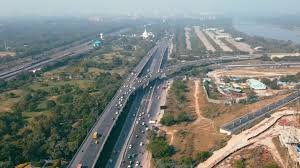India’s infrastructure sector is set to play a pivotal role in the nation’s ambitious goal of achieving a USD 5 trillion economy by 2028 and ultimately transforming into a “Developed Nation” by 2047. Significant investments and strategic planning in key infrastructure areas support this vision.
Massive Investments in Infrastructure
India plans to spend approximately Rs 143 lakh crore between fiscal years 2024 and 2030, focusing on Roads & Highways, Railways, and Water infrastructure. These investments are crucial for supporting the country’s economic growth and development. However, given the constraints on government spending, the Public-Private Partnership (PPP) model is becoming increasingly important.
PPP Model and Government Debt
Projections indicate that general government debt could surpass 100% of the country’s GDP by 2027-28. This scenario underscores the necessity of leveraging private sector investment through the PPP model to meet infrastructure demands effectively.
Boosting Road Sector Investments
Budgetary allocations for the road sector are expected to increase significantly. Key initiatives such as the National Monetisation Pipeline (NMP) and the National Infrastructure Pipeline (NIP) are instrumental in mobilizing infrastructure investments. The National Highways Authority of India (NHAI) plans to monetize 46 projects under the Toll-Operate-Transfer (TOT) Model, further accelerating infrastructure development.
Automobile Sector and Government Initiatives
The momentum in infrastructure development is supported by a growing automobile sector and robust government initiatives like “Housing for All” and “Make in India”. Additionally, substantial foreign direct investment (FDI) inflows in the construction sector, further boosting growth.
Embracing Technological Innovations
Indian reforms and global trends highlight a concerted effort to enhance funding mechanisms, embrace technological innovations, and prioritize sustainability in the Roads and Highways sector. The Ministry of Road Transport and Highways is leading initiatives such as the ‘Value Engineering Programme’ to promote the adoption of new technologies and materials. These efforts ensure that India’s roads and highways remain at the forefront of global infrastructure development.
Value Engineering and Sustainability
The Value Engineering Programme aims to improve the quality and efficiency of infrastructure projects by integrating advanced technologies and sustainable practices. This initiative is crucial for maintaining the competitiveness and sustainability of India’s infrastructure.
Expanding the Road Network
India boasts the second-largest road network in the world. The Government of India is committed to further augmenting and upgrading the highway network. A clear shift towards developing projects on a PPP (BOT) mode reflects the government’s strategy to involve the private sector in infrastructure development.
Public-Private Partnerships (PPP)
The PPP model is increasingly favored for developing highway projects. This approach not only alleviates the financial burden on the government but also ensures the timely and efficient completion of infrastructure projects.
(India CSR)





















